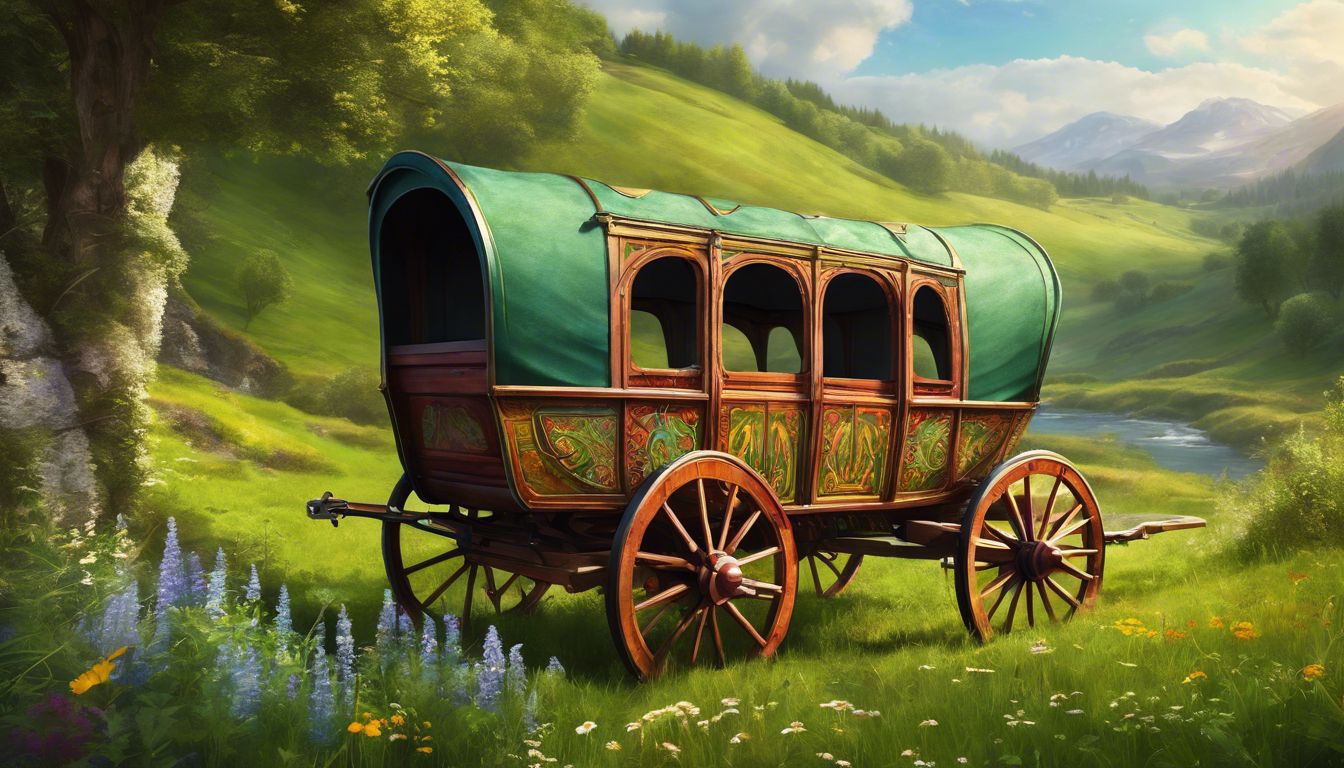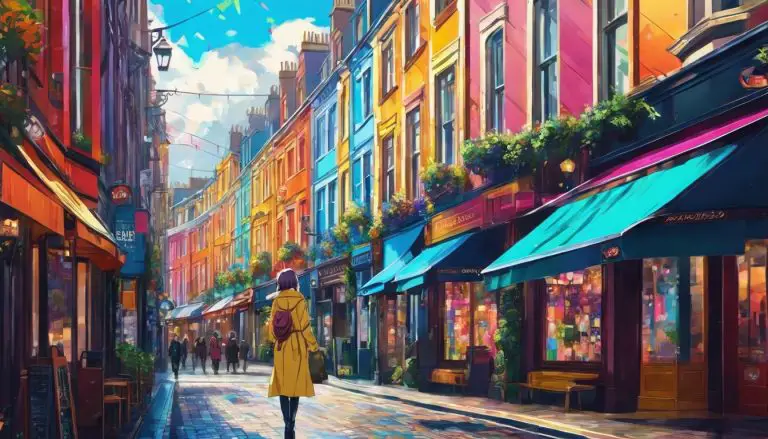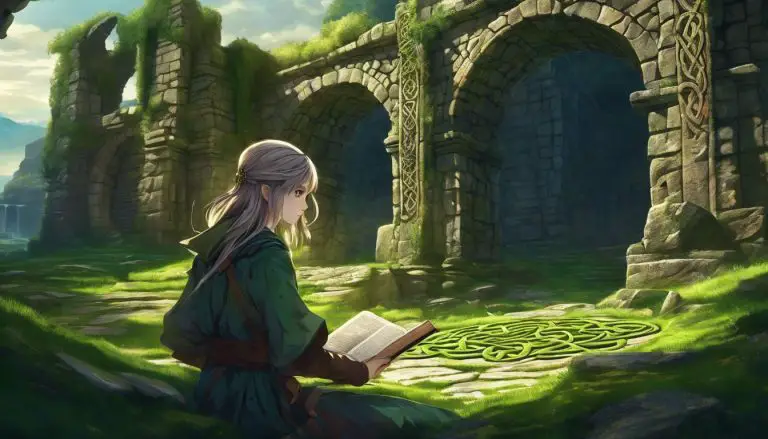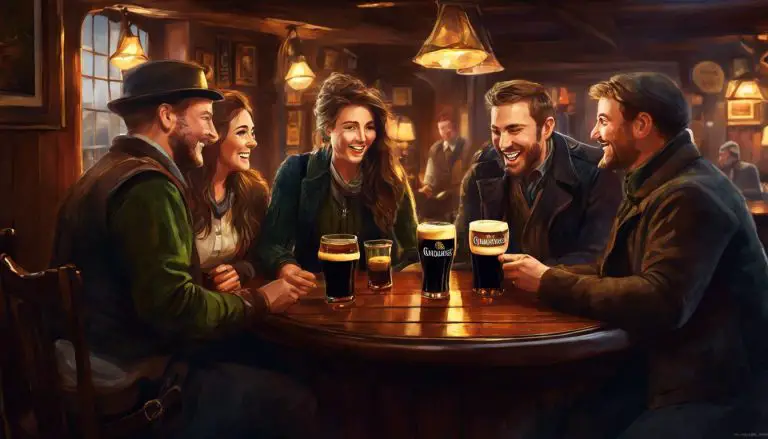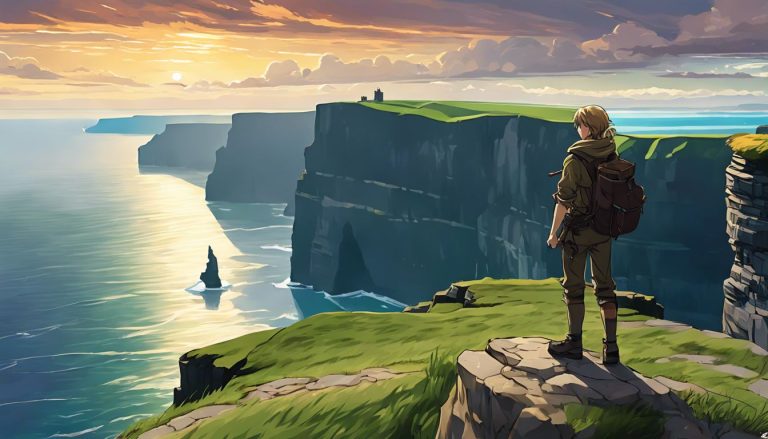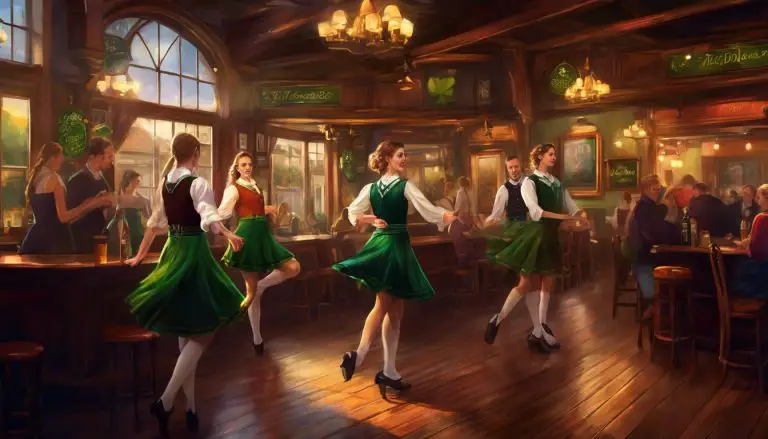What Are Irish Travelers: Exploring the Traditions and Culture of a Peripatetic Ethnic Group
Irish Travelers are a special group of people with their own way of life. They move around and have been doing so for a long time in Ireland. These folks are known for their unique language and traditions.
Just like other groups who travel and sell things, they have jobs that let them move from place to place.
They live differently from most Irish people, which makes them very interesting. The government has tried to help them settle down, but they still love their traveling ways. People all over the world are starting to see how important these travelers are.
Sometimes people don’t understand Irish Travelers well because of movies or TV shows. But there’s more to know about this group than what we see on screens.
Learning about Irish Travelers helps us appreciate how rich and varied human cultures can be. There’s much more to discover about these fascinating folks!
Key Takeaways
- Irish Travellers, or Pavees, are a distinct ethnic group indigenous to Ireland with an estimated population of around 30,000.
- They have their unique language called Shelta and maintain traditions like horse trading and storytelling.
- Despite being recognized as an ethnic minority, they face discrimination and challenges in education and healthcare.
- Media often shows them through stereotypes which can lead to misunderstandings about their culture.
- Documentaries help educate people about the true lives of Irish Travellers and challenge negative portrayals.
Who are Irish Travellers?
Irish Travellers, also known as Pavees or Mincéirs, are a historically nomadic ethnic group in Ireland. With a distinct language and cultural traditions, they are known for their traditional occupations and peripatetic lifestyle.
Nomenclature and origins
Travelers have long been called “White Gypsies,” but this name doesn’t fully capture their unique heritage. Unlike the Romany Gypsies, Irish Travelers are an indigenous ethnic group from Ireland.
They stand out with a rich history of their own. For centuries, they’ve lived apart from settled communities, yet always within sight of Irish culture.
Their roots run deep in Ireland’s past, forming an ethnocultural group with customs and traditions separate from the mainstream society. Experts believe they split from the larger population hundreds of years ago.
This separation created distinct genetic traits seen among them today. They carry on ancient practices that connect modern life to a nomadic past filled with artistry and trade.
Population and language
Irish Travellers are a separate ethnic group with their own unique language and cultural traditions. They have lived as a distinct community, separate from settled Irish society for generations.
The population of Irish Travellers is estimated to be around 30,000 in Ireland, with smaller communities in the United States and the United Kingdom. Their language, known as Shelta or Cant, is based on an older form of English mixed with Gaelic words and expressions.
Their nomadic lifestyle has led them to develop a strong sense of identity and cultural heritage. With their own language and customs, they have maintained a distinct way of life that sets them apart from other ethnic groups.
Traditional occupations and culture
Irish Travellers have a rich cultural heritage and distinct traditions that reflect their nomadic lifestyle. They are known for traditional occupations such as horse trading, metalwork, storytelling, and music.
These activities are deeply embedded in their culture and serve as a means of preserving their customs, language, and community identity. Irish Travellers also maintain a strong oral tradition, passing down stories, songs, and crafts from generation to generation.
Their peripatetic culture emphasizes the importance of mobility, self-sufficiency, and close-knit family ties.
Irish Travellers in Modern Society
Irish Travellers continue to face marginalization and discrimination in modern society, leading to social identity conflicts. Access to education, healthcare, and religious services remains a challenge for this peripatetic ethnic group.
Marginalization and discrimination
Irish Travellers have faced discrimination and marginalization for years, impacting their access to education, healthcare, and employment. The group has been excluded from settled communities due to misunderstandings about their traditions and lifestyle.
Despite being recognized as an indigenous minority, Irish Travellers continue to experience prejudice in various facets of society.
Efforts have been made to integrate Irish Travellers into mainstream culture by providing government-provided housing; however, discrimination persists. This ethnic group’s distinct identity and cultural practices have often been misunderstood and misrepresented, leading to ongoing challenges in achieving social equality.
Social identity and conflicts
Despite efforts to integrate Irish Travellers into mainstream society, conflicts around social identity persist. The distinct traditions and cultural practices of the community have led to marginalization and discrimination in various aspects including education, employment, and access to healthcare.
This has instigated tensions between the Traveller community and settled Irish populations. While attempts to preserve their unique ethnic identity have been made, these efforts have at times clashed with prevailing societal norms.
Irish Travellers face challenges in asserting their social identity due to stereotypes perpetuated by media depictions. These biases contribute to the perpetuation of negative perceptions about the community, leading to further conflicts within the larger society.
Education, religion, and health
Irish Travellers have distinct cultural and traditional practices that influence their approach to education, religion, and health. Education is valued within the community but can be challenging due to their nomadic lifestyle.
Irish Traveller children often face barriers in accessing formal education, leading to lower levels of literacy and educational attainment compared to the general population. Religion plays a significant role in their lives, with Catholicism being the predominant faith among Irish Travellers.
Health disparities exist within the community, with higher rates of certain health issues such as respiratory problems, reflecting challenges in accessing healthcare services and maintaining consistent medical care.
Religious ceremonies are central to Irish Traveller life, providing a sense of identity and belonging. The preservation of traditions extends to healthcare practices as well; they may rely on traditional remedies while also seeking modern medical intervention when necessary.
Depictions and Perceptions of Irish Travellers
Explore the media portrayal and stereotypes of Irish Travellers, as well as documentaries and explanations that aim to provide a more accurate understanding of this peripatetic ethnic group.
Dive deeper into the intricacies of their culture and traditions.
Media portrayal and stereotypes
Media often portrays Irish Travellers through negative stereotypes, perpetuating misconceptions about their culture and lifestyle. Some depictions in the media have focused on criminal activity and anti-social behavior, contributing to a biased view of this ethnic group.
Documentaries and news coverage have sometimes sensationalized their traditional way of life instead of presenting a balanced perspective that recognizes their rich cultural heritage.
Despite efforts to challenge these portrayals, there remains a need for more accurate and diverse representations in the media that reflect the true diversity and complexity of Irish Traveller traditions.
Some depictions in movies and TV shows have entrenched harmful stereotypes about Irish Travellers as well. These misleading portrayals contribute to misperceptions among wider society and affect how Irish Travellers are treated by others.
Documentaries and explanations
Many documentaries have sought to provide accurate representations of Irish Travellers, shedding light on their cultural traditions and challenges. These documentaries aim to challenge the stereotypes perpetuated by media portrayals and offer a genuine glimpse into the lives of this peripatetic ethnic group.
Through these visual narratives, viewers gain insight into the indigenous culture and traditions upheld by Irish Travellers, fostering a greater understanding and appreciation for their unique way of life.
Explanations provided in these documentaries serve as educational tools, debunking misconceptions about Irish Travellers while highlighting their contributions to Ireland’s cultural tapestry.
Conclusion: Understanding and Appreciating Irish Travellers
In conclusion, Irish Travellers are a distinct ethnic group with their own language and cultural traditions. Efforts have been made to settle them into mainstream society, but they continue to maintain their unique identity.
Their traditional occupations and nomadic lifestyle reflect a heritage that sets them apart from settled Irish communities. It is important to understand and appreciate the rich traditions and culture of the Irish Travellers as an integral part of Ireland’s diverse heritage.
FAQs
1. Who are the Irish Travelers?
Irish Travelers are a peripatetic ethnic group with their own traditions and culture, known for moving from place to place and having a rich Irish heritage.
2. What kind of traditional work do Irish Travelers do?
Traditionally, Irish Travelers have been involved in trades like metalwork, selling goods, and other work that fits well with their mobile lifestyle.
3. Why is it important to explore the culture of Irish Travelers?
Exploring the traditions and culture of Irish Travelers helps us understand an important part of Ireland’s cultural landscape and appreciate its diversity.
4. Are Irish Travelers the same as Gypsies?
While they share some similarities such as a nomadic lifestyle, Irish Travelers are distinct from the Romani people often referred to as “Gypsies,” with unique customs reflecting their ethnic traditions.
